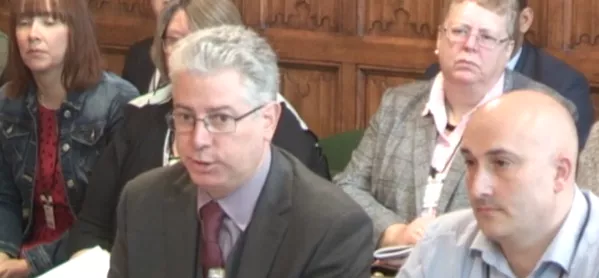Councils are “stringing out” decisions about care plans for children with special educational needs and disabilities to save money, MPs have heard.
The Commons Education Select Committee was told this morning about one child who had started self-harming because of delays in receiving support.
Labour MP Thelma Walker said a delegation of parents whose children have SEND told her that they had decided to home-school them “because they had waited so long to have education and health care plans [EHCP] put in place”.
She added: “One parent talked about her child being so vulnerable and so stressed and so distressed that he started self-harming, and she said she just couldn’t face what he was going through because the wait was so long.”
SEND funding cuts have recently triggered a wave of legal action from parents.
Justin Cooke, policy and public affairs manager at the charity Ambitious about Autism, said a survey that his organisation carried out this year found that 40 per cent of parents had waited over 18 months for a EHCP, when the wait should be no more than 20 weeks.
He said this was partly because local authorities no longer have the expertise to do the job, but also “they are using the EHCP process as a gatekeeper to that money”.
He told MPs: “If you don’t get the EHC plan, you don’t get funding from the top-up funding, so if you make parents wait as long as possible, you are keeping your budget.
Councils 'push SEND parents to appeal'
“Most local authorities know that if they give a new EHC plan, they haven’t got any money to fund it, and it’s needs-based, and the parents know how much money they should be getting.”
He added: “They do push parents a lot of the time to go to appeals and tribunals. They push them all the time. They say, 'You need a diagnosis first,' when you don’t, and when you’ve got a diagnosis they say, 'You need an assessment'.
“They will string it out as long as possible sometimes.”
He said some councils had very high numbers of appeals per decision, which he said shows some are “misusing the system” because of the cost implications.
The committee heard that local authorities had spent £70 million on tribunals in 2014 to 2017, which Conservative MP Lucy Allan called “the most disgraceful waste of money in a sector that is so squeezed”.
Committee chair Robert Halfon said 89 per cent of tribunal cases were lost by councils, adding that “surely something is going deeply wrong here in the amount of cases that councils are challenging and the waste of money that they could actually put on the front line”.
Jackie Lown, head of children and young people specialist services at East Riding of Yorkshire Council, said her council had nine tribunals last year, out of 1,800 ECHPs.
She said the council would always try to reach agreement with a parent before this stage.
Ms Lown told MPs that the council would go to a tribunal if it thought the parent’s preference would not be in the best interests of the child, or if the cost of the placement they wanted would “take a great deal of money out of our system when we think we have provision within the authority we would want to use”.
The committee also heard that most councils have introduced a system for giving schools extra money for children with SEND that one MP described as “a system for managing resources rather than meeting needs”.
Matt Keer, a parent and contributor to the Special Needs Jungle website, said 134 councils had introduced a “banding” system.
Conservative MP Ben Bradley asked whether councils “go out of their way to put children in lower bands to save money”.
Mr Kerr said he was “aware of cases”, but added that “it will vary hugely according to the local authority’s operational policy”.
And he added that only four of the 134 councils that use banding had allowed band values to increase with costs.
He said “the rest of them had mostly kept levels static and increasingly are now looking to reduce those”.





